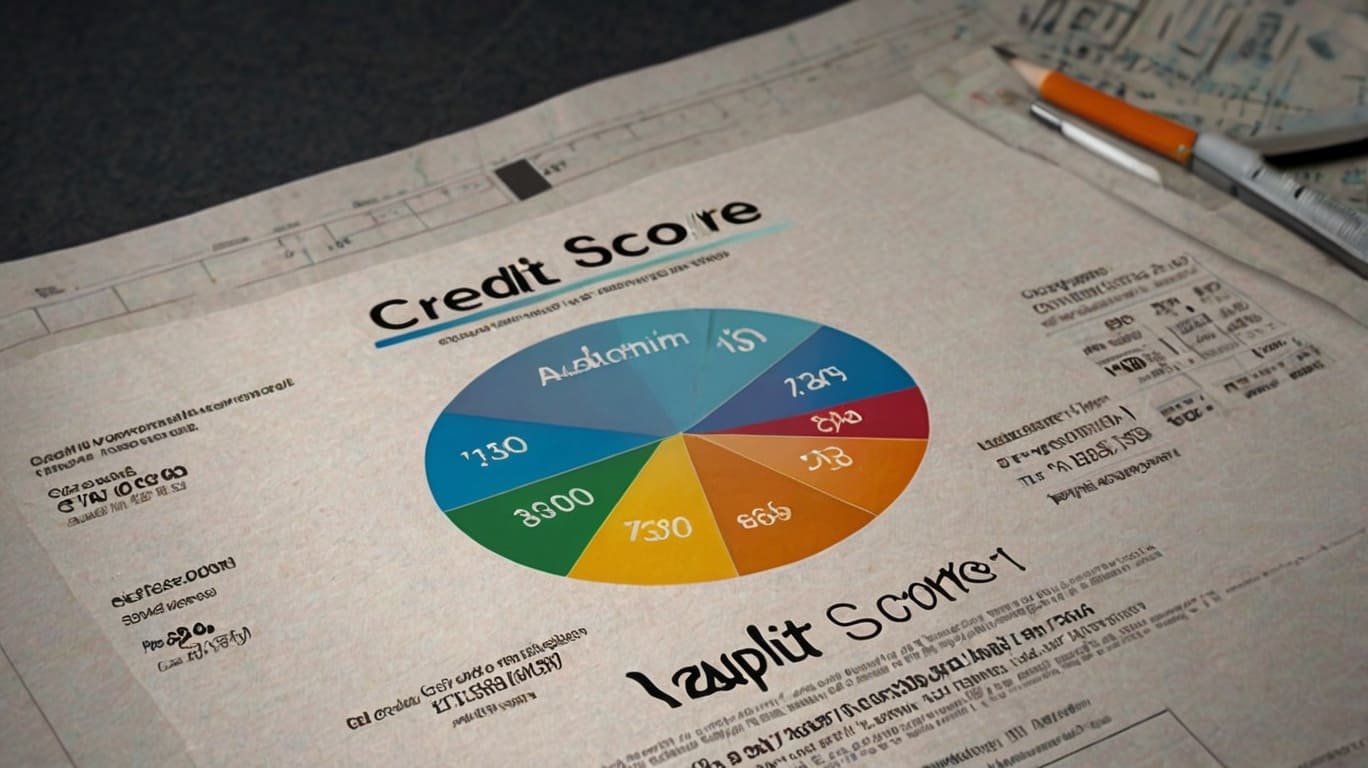Understanding Credit Score Improvement: A Comprehensive Guide
💲Credit score improvement is possible when you understand why your numbers can fluctuate so dramatically over time. Have you ever wondered what causes these changes? In today’s financial landscape, maintaining a healthy credit score is crucial for accessing loans, credit cards, and even housing.
To demystify the intricacies of credit score improvement, this article delves into the fundamental aspects of credit management, providing insights into how you can enhance your financial standing for the long term.🌟
What is a Credit Score?
A credit score is a numerical representation of a person’s creditworthiness, calculated based on their credit history. It is crucial for lenders as it helps them determine the risk involved in extending credit to a borrower.
Credit scores range from 300 to 850, with higher scores indicating a lower risk to lenders. Understanding what constitutes a credit score is the first step towards improvement. Payment history, amounts owed, length of credit history, new credit, and credit mix are the primary factors that contribute to your credit score.
| Factor | Weight | Influence on Score |
|---|---|---|
| Payment History | 35% | Timely payments boost score |
| Amounts Owed | 30% | High balances can lower score |
| Length of History | 15% | Longer history enhances score |
| New Credit | 10% | Frequent inquiries can hurt score |
| Credit Mix | 10% | Diverse accounts may improve score |
Why Credit Scores Matter
💲Credit scores influence more than just loan approvals—they also impact interest rates on loans, premiums on insurance policies, and even job opportunities in some cases.
A good credit score can save you thousands of dollars over a lifetime by reducing interest payments. Conversely, a poor credit score can lead to higher costs and fewer financial opportunities. Recognizing the broader implications of your credit score can motivate you to prioritize credit health in your financial planning.🌟
Steps to Start Improving Your Credit Score

Improving your credit score is not an overnight process, but with consistent effort, significant improvements can be achieved. Begin by reviewing your credit reports from major credit bureaus to check for inaccuracies or fraudulent activity.
Paying bills on time, reducing outstanding debts, and maintaining low credit card balances are effective strategies. It’s also advisable to limit new credit inquiries to minimize impacts on your score.
“The journey to a better credit score begins with understanding its impact on your financial future.”
The Role of Credit Reports
A credit report is a detailed account of an individual’s credit history, maintained by credit bureaus. Understanding your credit report is essential, as it directly impacts your credit score.
These reports contain details about your credit accounts, payment history, and any collections or public records. Regularly reviewing your credit report can help identify errors or potential fraud, allowing you to take corrective measures promptly.
Common Misconceptions About Credit Scores

Many myths surround the notion of credit scores, leading to misinformed financial decisions. One common misconception is that checking your own credit will lower your score—this is not true if done through soft inquiries.
Another myth is that closing old accounts will improve your score; however, keeping accounts open can actually improve your credit utilization ratio and the length of credit history.
1- Checking your own credit is safe and does not harm your score.
2- Closing old accounts can negatively affect your credit history length.
3- Having multiple credit types can positively impact your score.
4- Reducing credit card balances is crucial for improving score.
Utilizing Credit Counseling Services
💲Credit counseling services offer professional guidance on managing debt and improving credit scores. These services can be particularly beneficial for individuals struggling with significant debt, providing personalized financial advice and budgeting assistance.
By working with a credit counselor, you can develop a structured plan to pay off debts, negotiate with creditors, and build healthier financial habits.
Long-Term Strategies for Sustaining a High Credit Score
While quick fixes for credit scores are often advertised, sustainable improvement relies on long-term strategies. Consistently paying bills on time, keeping balances low on credit cards, and avoiding excessive new credit are foundational practices.
Additionally, budgeting effectively to prevent overspending can ensure that your credit utilization rate remains manageable.
Recovering from Credit Mistakes
Everyone makes financial mistakes, but recovery is possible with patience and diligence. If you’ve missed payments or defaulted on a loan, focusing on timely payments moving forward is crucial.
Contact creditors to negotiate payment plans or settlements that may prevent further derogatory marks on your credit report. Over time, responsible credit behavior will gradually rebuild your score.
FAQ – Common Questions
✅ How often should I check my credit score?
It’s advisable to check your credit score at least once a year or before major financial decisions.
✅ Do closed accounts affect my credit score?
Closed accounts can affect your score by reducing your credit history length and affecting credit utilization if they were longstanding accounts.
✅ Can I raise my credit score by paying off all debt?
Paying off debt can significantly boost your score, but maintaining low balances and timely payments are also crucial.
✅ What are soft inquiries and hard inquiries?
Soft inquiries do not impact your credit score and occur when you check your own report. Hard inquiries can affect your score and occur when lenders check for credit approval.
✅ How long do negative items stay on my credit report?
Negative items, like missed payments, typically remain on your credit report for seven years. Bankruptcies can stay longer, up to ten years.
Conclusion
💲Enhancing your credit score involves understanding its significance, recognizing common pitfalls, and implementing targeted strategies to maintain financial health.
By taking a proactive approach to managing your credit, you can unlock better financial opportunities and ensure greater stability for the future. Remember, the key to a good credit score lies in consistent and responsible financial actions.🌟
👉 From Zero to Financial Freedom
The “From Zero to Financial Freedom” course is essential to ensure a more prosperous and peaceful future for you and your family. It’s an excellent option for those seeking efficiency and quality on their journey toward financial independence.

